Big President With a Small Federal Government
This is part one of a two-part video series in defense of a stronger presidency and how it can be achieved.
PART 2: {comes out next week}
As a conservative federalist, I believe in a small limited federal government more in alignment with our U.S. Constitution.
"Why has government been instituted at all? Because the passions of man will not conform to the dictates of reason and justice without constraint." ― Alexander Hamilton
"One thing is clear: The Founding Fathers never intended a nation where citizens would pay nearly half of everything they earn to the government." ― Ron Paul
But where I differ with many of my friends on the right is I believe in a strong presidency, which of our Founding Fathers puts me more in agreement with Federalists John Adams and Alexander Hamilton.
John Adams believed monarchy was a greater defender of liberty than aristocracy.
"You are apprehensive of monarchy; I, of aristocracy. I would therefore have given more power to the President and less to the Senate." — John Adams
Overall, I believe in strong executives whether they be in business or government; or function on the local, state, regional, national, or global level.
Think about all the greatest things that have been created by human civilization… they were nearly all created or spearheaded by a strong executive/individual rather than a committee, legislature, or board.
Hierarchical organizations are the most successful in history and anyone who’d try to ignore this lesson by forcing some ideal like “communism” or “corporate democracy” on the US socio-economic system will upon “success” automatically find themselves part of a dying country as it’d only be a matter of time before we’re superseded by a more effective/efficient hierarchical organization. Nature does not bow to utopia.
Chimps need alphas.
A committee/board/legislature isn’t effective at leading, but it can be effective at accountability so that if an executive fails to meet certain goals they can be removed from office via impeachment or firing so a new leader can steer the ship, but until/if then an executive should be allowed to steer it largely unimpeded.
As a caveat I will say that America’s Chief Executive should be more constrained than your average CEO or monarch, but less than the status quo (in domestic affairs).
Consider this — Trump had a Republican-majority House & Senate and now Biden has a Democratic-majority House & Senate and yet what have they achieved thus far?
President Trump neither finished the wall, repealed Obamacare, or “drained the swamp” as evidenced by the fact no president has come to personify the swamp more than President Joe Biden.
I think the inability of modern presidents’ to enact their domestic agenda is due to, as John Adams foreshadowed, America being ruled by an aristocracy.
All the cheering and tears of 2016 so that Trump would barely move the needle. Bread & circuses to distract the public from the consolidation of power in the hands of the 1%: Big Gov, Big Tech, Big Media, and Big Ed.
Over the last 100 years as the control of the federal government and the aristocracy has grown; the middle class has shrunk! Democratic presidents can speed up DC’s consolidation of power whereas Republican presidents only seem capable of slowing it down a bit.
Unfortunately, as much as we’d like to think the buck stops with the president it hasn’t for a long time and so to suggest it does is a bit disingenuous and causes Americans’ to overestimate the president’s power.
For example, the president is the head of our Executive Branch and yet he needs the consent of the Senate to make appointments to it. It’s interesting to note that John Adams had two central concerns for the U.S. Constitution: #1 there was no Bill of Rights (this was added later) and #2 that the president would be unable to make appointments without Senate approval.
But here’s what I see is one of the key weaknesses of the presidency: a president can unilaterally fire his appointments (except judicial ones), but he cannot fire federal employees who supposedly work under his authority.
Only the president’s appointees can fire federal employees in their department, but for the appointee to do that still requires a ton of paperwork and “cause.”
Due to the Pendleton Civil Service Reform Act of 1883, Executive Order 10988, and the Civil Service Reform Act of 1978, it’s much easier for a department to move incompetent federal employees to a new position instead of firing them. Federal workers face a 0.2% chance of getting fired in any given year, which is more than 45X lower than their private-sector counterparts. The average federal employee also makes more than 160% of the average private worker.
Read FULL Article @ https://www.anthonygalli.com/
-
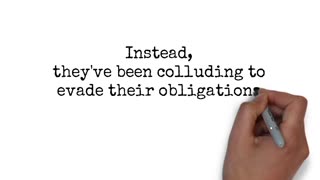 7:58
7:58
Truth About Your American Government
5 months agoYour (American) Government
111 -
 0:53
0:53
TheDanFreemanShow
9 months agoBig Government VS Small Government
1 -
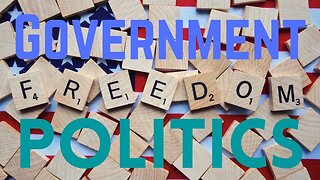 19:11
19:11
TheGrumpyOldFart
1 year agoWhy Small Government IS Better
8 -
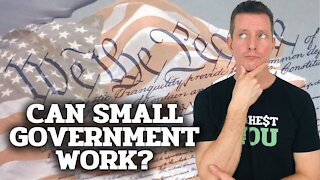 15:51
15:51
Richest You with Tom Sweeney
3 years agoCan Small Government Work?
841 -
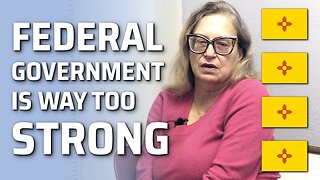 1:58
1:58
Spoken Words in New Mexico
1 year agoFederal Government Is Way Too Strong
26 -
 1:27
1:27
DcrypTos
8 months agoKEEP government small! Its simple!
-
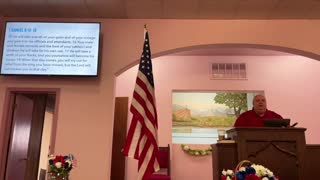 30:16
30:16
realjohnny
1 year agoSmaller Government is Biblical Government
342 -
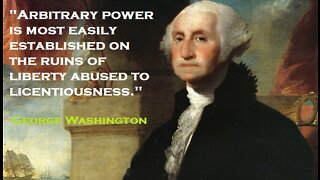 10:35
10:35
papagiorgio200
1 year agoThe American Form Of Government
117 -
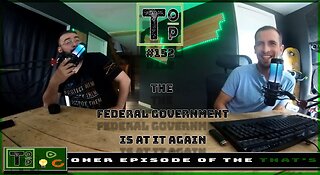 29:21
29:21
That's On Point
11 months ago152 The Federal Government Is At It Again
2 -
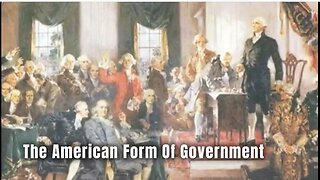 10:34
10:34
Truths Unlimited
4 months agoThe American Form Of Government
2.33K2